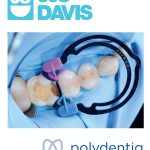Good habits build the foundation for a healthy lifestyle. When it comes to oral health, this is even more so. However, as most dental professionals can attest, encouraging better habits in patients isn’t always easy – discouraging bad ones can be even more challenging. Nonetheless, when good oral hygiene practices become everyday habit, patients can enjoy all of the benefits of a clean and healthy smile.
The science
Habits are considered a ‘fixed way of thinking, willing, or feeling acquired through previous repetition of a mental experience’.[i] Habits are as individual as the person who has them, and therefore discovering ways to change them, or adopt them, is not always straightforward.
Research has postulated that to form successful habits, the key is behavioural repetition in response to a cue.[ii]In 1999, researchers at the Massachusetts Institute of Technology (MIT) coined the term, ‘cue-routine-reward feedback loop’.[iii] Regarding unhealthy or unwanted habits, the cue might be triggered by boredom, for instance, which leads to a craving that prompts you to act. Your response will be engaging in a particular behaviour that leads to the outcome – the reward. And so, the loop begins once more.
Oral health habits
 When it comes to your patients, there are plenty of examples where bad habits are easily adopted, many of which can impact overall and oral health. For instance, smoking and consuming sweet treats. These habits can be challenging to ditch due to sugar and nicotine addictions, as well as the comfort they can bring in times of stress, for example. As you well know, these habits are detrimental to oral health, with sugar wreaking havoc on the tooth’s enamel, and smoking increasing the risks of mouth cancer and staining. Oral health education has taken strides in recent years, with many initiatives like National Smile Month and Mouth Cancer Action Month striving to inform and influence the nation’s health. However, the UK’s oral health is still not where it should be.
When it comes to your patients, there are plenty of examples where bad habits are easily adopted, many of which can impact overall and oral health. For instance, smoking and consuming sweet treats. These habits can be challenging to ditch due to sugar and nicotine addictions, as well as the comfort they can bring in times of stress, for example. As you well know, these habits are detrimental to oral health, with sugar wreaking havoc on the tooth’s enamel, and smoking increasing the risks of mouth cancer and staining. Oral health education has taken strides in recent years, with many initiatives like National Smile Month and Mouth Cancer Action Month striving to inform and influence the nation’s health. However, the UK’s oral health is still not where it should be.
There are many factors that could influence why almost one in three adults have tooth decay and have never flossed or cleaned interdentally.[iv] The importance of toothbrushing, however, seems to be more foregrounded than that of interdental cleaning – why? As professionals know, interdental cleaning can improve periodontal health, with researchers showing that those who interdentally cleaned more frequently have a lower number of coronal/interproximal caries and missing teeth.[v] But many patients still struggle to make interdental cleaning a habit.
Flossing – help patients get it right!
Patients often remark that flossing string is difficult to put between the teeth, is fiddly or even uncomfortable, which is enough to prevent flossing from becoming a habit. Many patients depend upon regular cleans at the dental practice, without keeping up with effective plaque control in between – this can result in subgingival colonisation within around four to eight weeks after the appointment.[vi] To help patients make interdental cleaning a habit, professionals need to devise ways to not only encourage patients to see its real value, but to also make it enjoyable.
Aside from floss, there are various other modalities that may suit different patient preferences, such as interdental brushes that can come in a range of sizes and shapes. When used in conjunction with normal brushing, interdental brushes may help to achieve lower interdental plaque scores when compared to brushing alone.vi Conversely, for patients who struggle with poor dexterity, or who just don’t get on with dental floss or interdental brushes, water flossers have proven their efficacy over both in reducing bleeding, plaque and probing depths.vi Water flossers are also ideal for a range of different patient needs, such as those with dental implants or orthodontic appliances.[vii] [viii] The devices are easy and quick to use, making them a suitable adjunct to a patient’s oral hygiene routine.
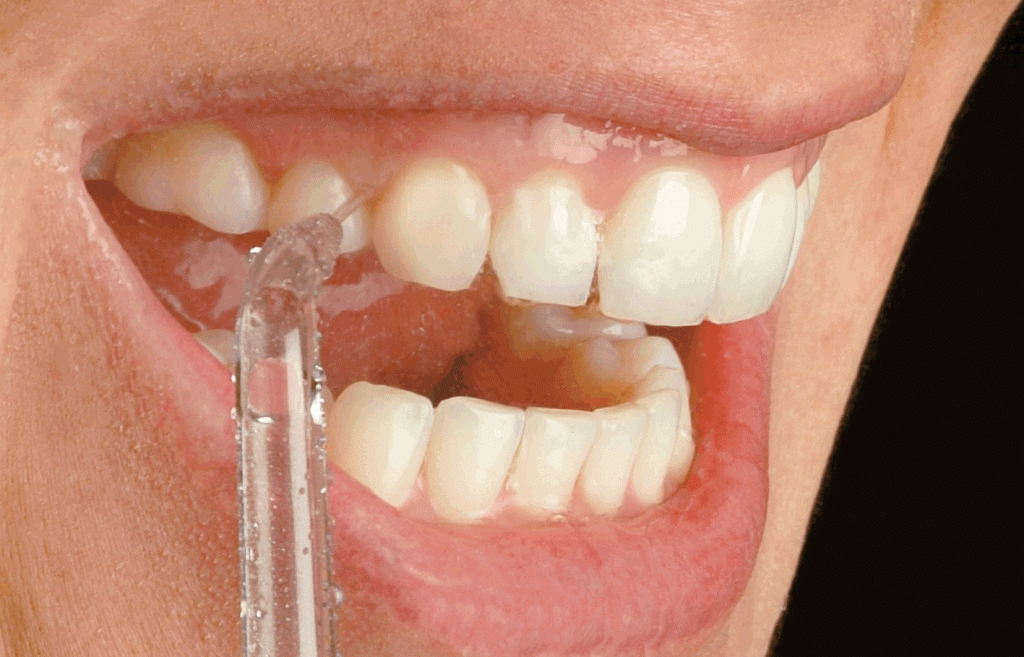 An easy solution
An easy solution
Waterpik® is delighted to be the world’s number one water flosser brand, providing innovative models backed by science. The Waterpik® Water Flosser combines water pressure and pulsations to provide a deep clean between the teeth and below the gumline. This helps to remove debris and bacteria often missed by traditional brushing and flossing. In fact, the Waterpik® Water Flosser helps to remove up to 99.9% of plaque,[ix] and is twice as effective as string floss for reducing gingival bleeding.[x] For a solution that offers an optimal performance while being easy for everyday use, recommend the Waterpik® Water Flosser to your patients today!
As we have entered the New Year, you will no doubt have heard many patients talk about their resolutions – habits they want to adopt and ones they want to break, with many relating to their health. Now is the perfect time to talk to patients about the importance of good oral health habits, which they can implement to become part of their lifestyles for good.
For more information on Waterpik® Water Flosser products visit www.waterpik.co.uk. Waterpik® products are available from Amazon, Costco UK, Argos, Boots, Superdrug and Tesco online and in stores across the UK and Ireland.
Join the 3,000+ dental teams who have already benefitted from a professional Waterpik® Lunch & Learn. Book your free session for 1 hour of verifiable CPD and a free Waterpik®Water Flosser – available either face to face or as a webinar – at www.waterpik.co.uk/professional/lunch-learn/
Pelagia Kaplanidou: Dental Hygienist/Therapist DipDHT (RCS Eng)
Pelagia is a Dental Hygienist/Therapist qualified from King’s Dental Hospital. She is currently studying for an MSc in International Healthcare Management at the University of Essex Online. Furthermore she is an NEBDN examiner since 2016 and a Waterpik professional educator covering the Norfolk area since 2018. In her clinical work as a therapist she has a special interest in paediatric therapy. Additionally, she strives to keep up to date with the latest advancements in her field within her scope of practice, such as the use of lasers in periodontal therapy.
[i] Andrews, B.R. (1903). Habit. The American Journal of Psychology, [online] 14(2), p.121. doi:10.2307/1412711.
[ii] Keller, J., Kwasnicka, D., Klaiber, P., Sichert, L., Lally, P. and Fleig, L. (2021). Habit formation following routine‐based versus time‐based cue planning: A randomized controlled trial. British Journal of Health Psychology, [online] 26(3), pp.807–824. Available at: https://bpspsychub.onlinelibrary.wiley.com/doi/full/10.1111/bjhp.12504 [Accessed 2 Nov. 2022].
[iii] MIT News | Massachusetts Institute of Technology. (n.d.). Brain researchers explain why old habits die hard. [online] Available at: https://news.mit.edu/2005/habit [Accessed 2 Nov. 2022].
[iv] Oral Health Foundation. (n.d.). Oral health statistics in the UK. [online] Available at: https://www.dentalhealth.org/oral-health-statistics [Accessed 3 Nov. 2022].
[v] Marchesan, J.T., Morelli, T., Moss, K., Preisser, J.S., Zandona, A.F., Offenbacher, S. and Beck, J. (2018). Interdental Cleaning Is Associated with Decreased Oral Disease Prevalence. Journal of Dental Research, [online] 97(7), pp.773–778. Available at: https://journals.sagepub.com/doi/abs/10.1177/0022034518759915 [Accessed 3 Nov. 2022].
[vi] Ng, E. and Lim, L.P. (2019). An Overview of Different Interdental Cleaning Aids and Their Effectiveness. Dentistry Journal, [online] 7(2). Available at: https://www.ncbi.nlm.nih.gov/pmc/articles/PMC6630384/ [Accessed 3 Nov. 2022].
[vii] Bunk, D., Eisenburger, M., Häckl, S., Eberhard, J., Stiesch, M. and Grischke, J. (2020). The effect of adjuvant oral irrigation on self‐administered oral care in the management of peri‐implant mucositis: A randomized controlled clinical trial. Clinical Oral Implants Research, [online] 31(10), pp.946–958. Available at: https://onlinelibrary.wiley.com/doi/full/10.1111/clr.13638 [Accessed 3 Nov. 2022].
[viii] Sawan, N., Ben Gassem, A., Alkhayyal, F., Albakri, A., Al-Muhareb, N. and Alsagob, E. (2022). Effectiveness of Super Floss and Water Flosser in Plaque Removal for Patients Undergoing Orthodontic Treatment: A Randomized Controlled Trial. International Journal of Dentistry, [online] 2022, pp.1–8. Available at: https://downloads.hindawi.com/journals/ijd/2022/1344258.pdf [Accessed 3 Nov. 2022].
[ix] Waterpik® Water Flosser Removes 99.9% of Plaque Biofilm After 3-Second Treatment – Biofilm Removal with a Dental Water Jet – Gorur A, Lyle DM, Schaudinn C, Costerton JW. Compend Contin Ed Dent 2009; 30 (Suppl 1):1 – 6.
[x] Waterpik® Water Flosser: Twice as Effective as String Floss for Reducing Gingival Bleeding – The Effect of Interdental Cleaning Devices on Plaque Biofilm and Gingival Bleeding – Rosema NAM et al. The effect of different interdental cleaning devices on gingival bleeding. J Int Acad Periodontol 2011; 13(1):2-10.




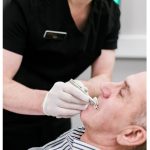


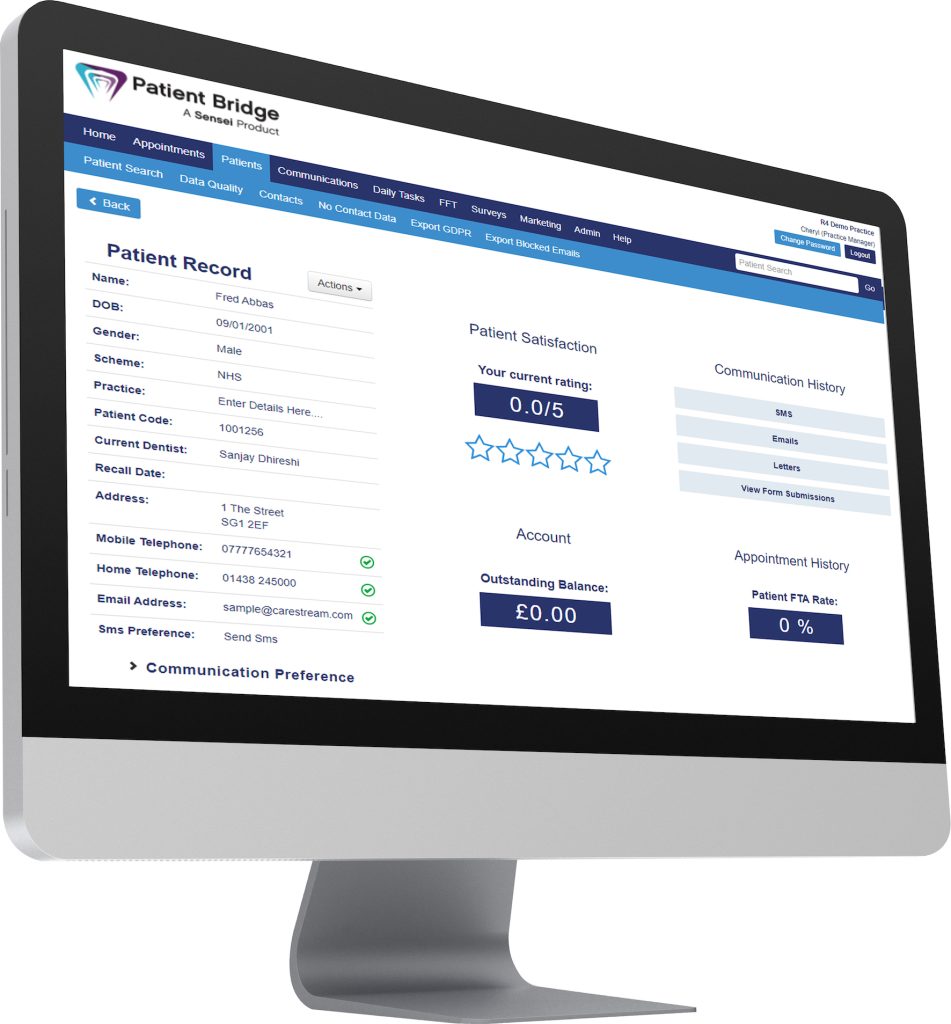 Creating a loyal patient base
Creating a loyal patient base
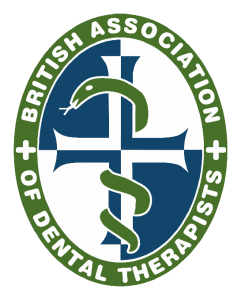

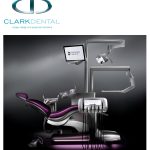

 When it comes to your patients, there are plenty of examples where bad habits are easily adopted, many of which can impact overall and oral health. For instance, smoking and consuming sweet treats. These habits can be challenging to ditch due to sugar and nicotine addictions, as well as the comfort they can bring in times of stress, for example. As you well know, these habits are detrimental to oral health, with sugar wreaking havoc on the tooth’s enamel, and smoking increasing the risks of mouth cancer and staining. Oral health education has taken strides in recent years, with many initiatives like National Smile Month and Mouth Cancer Action Month striving to inform and influence the nation’s health. However, the UK’s oral health is still not where it should be.
When it comes to your patients, there are plenty of examples where bad habits are easily adopted, many of which can impact overall and oral health. For instance, smoking and consuming sweet treats. These habits can be challenging to ditch due to sugar and nicotine addictions, as well as the comfort they can bring in times of stress, for example. As you well know, these habits are detrimental to oral health, with sugar wreaking havoc on the tooth’s enamel, and smoking increasing the risks of mouth cancer and staining. Oral health education has taken strides in recent years, with many initiatives like National Smile Month and Mouth Cancer Action Month striving to inform and influence the nation’s health. However, the UK’s oral health is still not where it should be. An easy solution
An easy solution 
 Get valued early: The earlier you get valued, the more your dental adviser can make recommendations and help you tweak areas in your business to boost its value. Dental Elite offers a free practice ‘health check’, which can be completed prior to your sale and will give you a chance to explore areas that could be enhanced. We can touch base with you and keep working with you leading up to sale to ensure that you’re achieving what you want to be achieving.
Get valued early: The earlier you get valued, the more your dental adviser can make recommendations and help you tweak areas in your business to boost its value. Dental Elite offers a free practice ‘health check’, which can be completed prior to your sale and will give you a chance to explore areas that could be enhanced. We can touch base with you and keep working with you leading up to sale to ensure that you’re achieving what you want to be achieving.
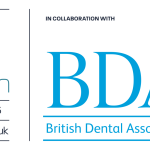
 Streamline your services
Streamline your services